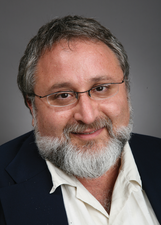An interview with Eben Moglen
Ice in the Wintertime

Few have had a closer view of the Free Software revolution than Eben Moglen, former lead counsel for the Free Software Foundation and founder of the Software Freedom Law Center. We asked Moglen about the legal basis for the GPL's famous copyleft protection and the long, steady effort to tell the world about the benefits of free software.
Linux Magazine: You started out with the Free Software Foundation (FSF) a little after the first GPL came out, right? So you weren't around at the founding.
Eben Moglen: GPLv2 was released in July of 1991. Around that time, I began working with a fellow called Philip Zimmermann, who had created a program called Pretty Good Privacy (PGP), which the United States government considered to be mutinous because it was crypto software. And there was a criminal investigation going on, claiming Mr. Zimmermann had violated the Arms Export Control Act by making PGP.
I and some other lawyers were working for Mr. Zimmermann. I had a conversation with John Markoff of the New York Times about the situation, and I said that the right to speak PGP is like the right to speak Navajo, which is a Native American language the United States government used as a form of radio encryption during World War II. So, John published that statement in an article in the Times, and when Richard Stallman read the article and saw my quote, he thought I might be able to help him with a personal legal problem he had at that time, so he got in touch.
[...]
Buy this article as PDF
(incl. VAT)
Buy Linux Magazine
Subscribe to our Linux Newsletters
Find Linux and Open Source Jobs
Subscribe to our ADMIN Newsletters
Support Our Work
Linux Magazine content is made possible with support from readers like you. Please consider contributing when you’ve found an article to be beneficial.

News
-
Chaos Comes to KDE in KaOS
KaOS devs are making a major change to the distribution, and it all comes down to one system.
-
New Linux Botnet Discovered
The SSHStalker botnet uses IRC C2 to control systems via legacy Linux kernel exploits.
-
The Next Linux Kernel Turns 7.0
Linus Torvalds has announced that after Linux kernel 6.19, we'll finally reach the 7.0 iteration stage.
-
Linux From Scratch Drops SysVinit Support
LFS will no longer support SysVinit.
-
LibreOffice 26.2 Now Available
With new features, improvements, and bug fixes, LibreOffice 26.2 delivers a modern, polished office suite without compromise.
-
Linux Kernel Project Releases Project Continuity Document
What happens to Linux when there's no Linus? It's a question many of us have asked over the years, and it seems it's also on the minds of the Linux kernel project.
-
Mecha Systems Introduces Linux Handheld
Mecha Systems has revealed its Mecha Comet, a new handheld computer powered by – you guessed it – Linux.
-
MX Linux 25.1 Features Dual Init System ISO
The latest release of MX Linux caters to lovers of two different init systems and even offers instructions on how to transition.
-
Photoshop on Linux?
A developer has patched Wine so that it'll run specific versions of Photoshop that depend on Adobe Creative Cloud.
-
Linux Mint 22.3 Now Available with New Tools
Linux Mint 22.3 has been released with a pair of new tools for system admins and some pretty cool new features.
